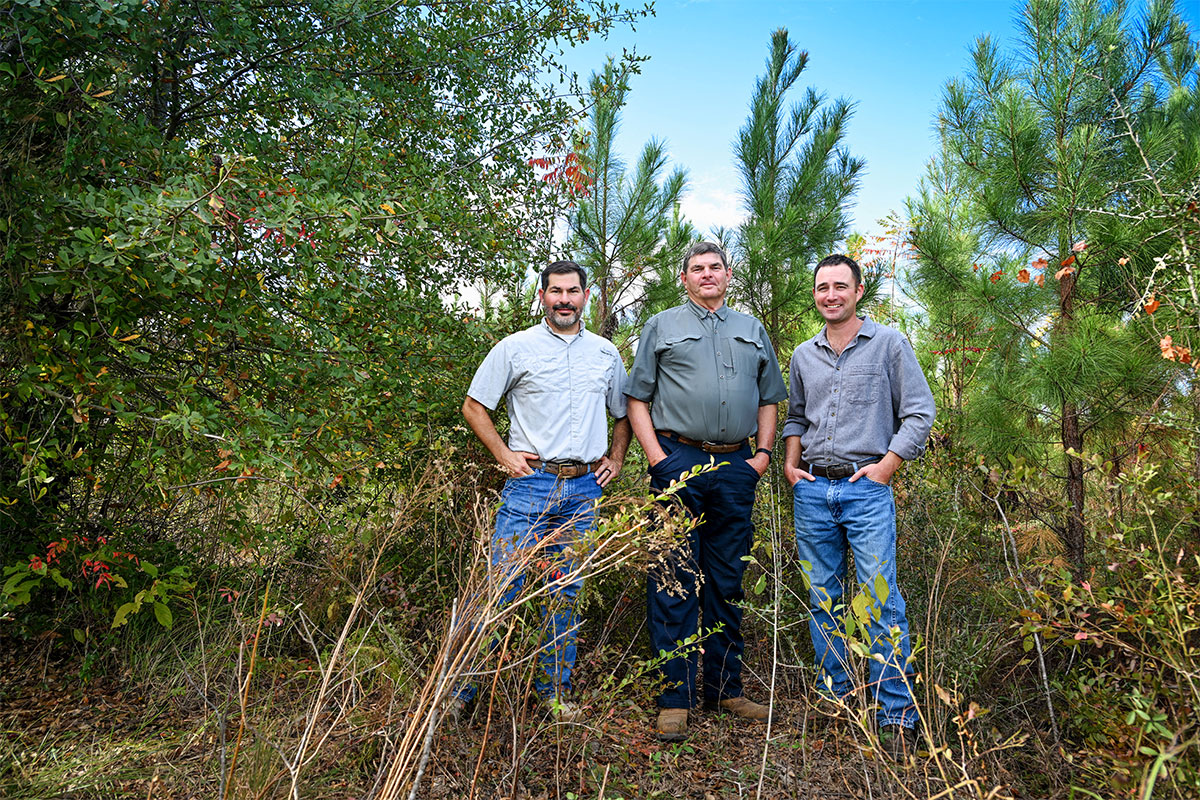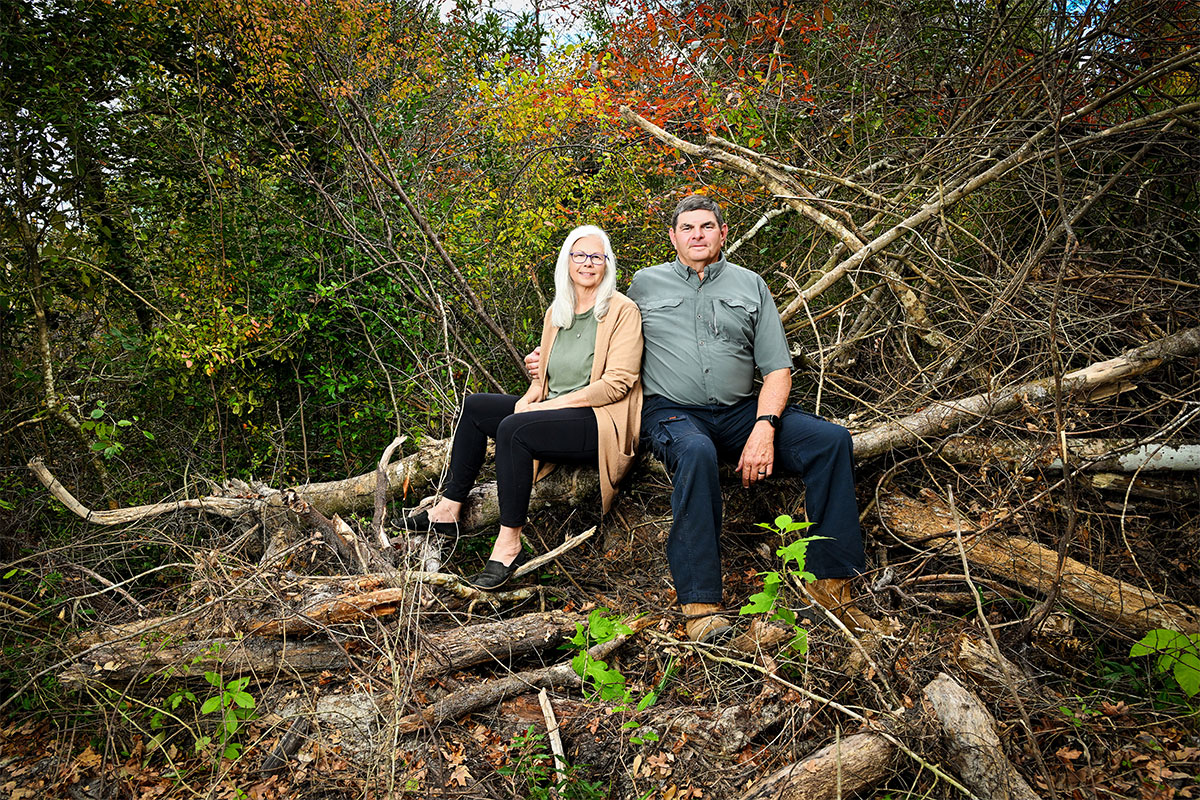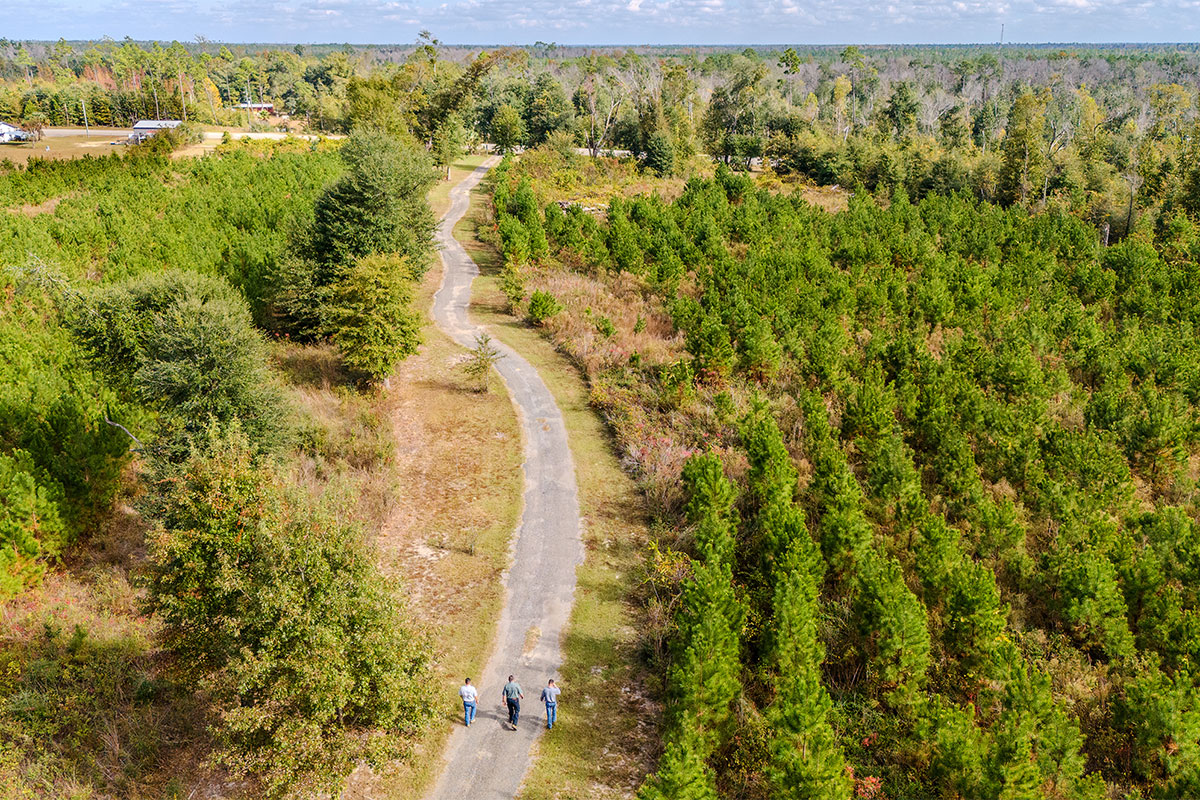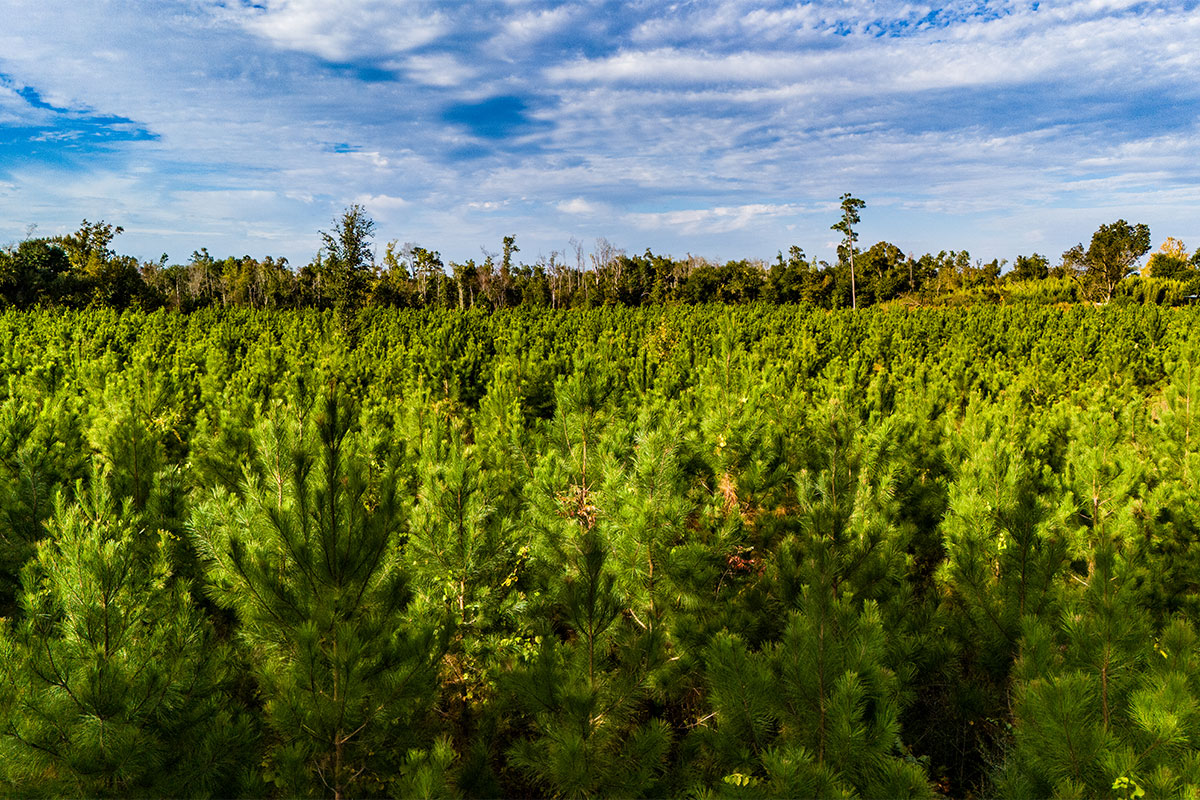For those nature lovers who don’t inherit a forest, purchasing one is a lifelong dream. Newton Jennings had always been an avid outdoorsman, and when the opportunity arose for him to purchase forested land for his family in 2021, he jumped at it.
“We purchased it as a piece of land where we could practice conservation wildlife management, habitat management. It was a financial stretch for us, but we jumped in with both feet and said, ‘if this this is doable, we’re going to make it work.’”
Jennings is already passing down conservation values to his three teenage sons, as his own family did for him. They already shadow (from a safe distance) the Georgia Forestry Commission professionals who manage controlled burns on the property. Someday, Jennings wants to pass the land onto them.
“This is a little piece of God’s earth. And if I can maintain a section where we keep it wild and free, I want to do that,” he says.
For Annie Dawson, seeing her father own a forest in her childhood fueled her desire to own one someday. After retiring from teaching, she finally found the perfect opportunity — near where her parents owned land. With its fishpond, vineyard, and abundance of wildlife, it was everything she always wanted.
“I never dreamed I would be able to get a piece of property like that. It’s quiet. It’s serene. I’d rather go up there and sit on the porch and swing, it’s just relaxing,” she says.







